THE ETHICS OF
WAR AND PEACE
REVISITED
Also from Georgetown University Press
Biosecurity Dilemmas: Dreaded Diseases, Ethical Responses, and the Health of Nations
Christian Enemark
The Ethics of Interrogation: Professional Responsibility in an Age of Terror
Paul Lauritzen
Ethics Beyond Wars End
Eric Patterson, Editor
Human Dignity and the Future of Global Institutions
Mark P. Lagon and Anthony Clark Arend, Editors
Just War: Authority, Tradition, and Practice
Anthony F. Lang Jr., Cian ODriscoll, and John Williams, Editors
Sovereignty: Moral and Historical Perspectives
James Turner Johnson
Wars Ends: Human Rights, International Order, and the Ethics of Peace
James G. Murphy
THE ETHICS OF WAR AND PEACE REVISITED
MORAL CHALLENGES in an ERA of CONTESTED
and FRAGMENTED SOVEREIGNTY
DANIEL R. BRUNSTETTER AND
JEAN-VINCENT HOLEINDRE, EDITORS
2018 Georgetown University Press. All rights reserved. No part of this book may be reproduced or utilized in any form or by any means, electronic or mechanical, including photocopying and recording, or by any information storage and retrieval system, without permission in writing from the publisher.
The publisher is not responsible for third-party websites or their content. URL links were active at time of publication.
Library of Congress Cataloging-in-Publication Data
Names: Brunstetter, Daniel R., editor. | Holeindre, Jean-Vincent, editor.
Title: The ethics of war and peace revisited : moral challenges in an era of contested and fragmented sovereignty / Daniel R. Brunstetter and Jean-Vincent Holeindre, editors.
Description: Washington, DC : Georgetown University Press, 2018. | Includes bibliographical references and index.
Identifiers: LCCN 2017004610 (print) | LCCN 2017008154 (ebook) | ISBN 9781626165069 (hc : alk. paper) | ISBN 9781626165076 (pb : alk. paper) | ISBN 9781626165083 (eb)
Subjects: LCSH: WarMoral and ethical aspects. | PeaceMoral and ethical aspects. | International relationsMoral and ethical aspects.
Classification: LCC U22 .E854 2018 (print) | LCC U22 (ebook) | DDC 172/.42dc23
LC record available at https://lccn.loc.gov/2017004610

This book is printed on acid-free paper meeting the requirements of the American National Standard for Permanence in Paper for Printed Library Materials.
19 18 9 8 7 6 5 4 3 2 First printing
Printed in the United States of America
Cover design by Jeremy John Parker.
CONTENTS
Daniel R. Brunstetter and Jean-Vincent Holeindre
Aidan Hehir
Thomas Lindemann and Alex Giacomelli
Nigel Biggar
Kerstin Fisk and Jennifer M. Ramos
Jean-Baptiste Jeangne Vilmer
Deborah Avant
Jean-Vincent Holeindre
John Kelsay
John R. Emery
Shannon E. French, Victoria Sisk, and Caroline Bass
Daniel R. Brunstetter
Frdric Ramel
Brian Orend
Cian ODriscoll
Daniel R. Brunstetter and Jean-Vincent Holeindre
ACKNOWLEDGMENTS
YEARS AGO, a Chateaubriand Fellowship proved the impetus for the editors to meet at the cole de Hautes tudes en Sciences Sociales, Centre dtudes sociologiques et politiques Raymond-Aron in Paris, in 2005. The idea for the conference and the book emerged from years of intellectual friendship. We would like to thank the Borchard Foundation for the grant that allowed us to host a conference at the Chteau de la Bretesche in France in 2014. The mission of the Borchard Foundation is to facilitate intellectual exchanges between American and European scholars, and we think that this volume has done so in a very meaningful way. The intellectual rapprochement of the scholars while this volume evolved occurred during a time when France was the victim of multiple terrorist attacks. Given the subject of the book, the ensuing conversations created a special form of critical solidarity as we all responded intellectually and emotionally to the growing angst not only in France but also around the globe.
The chapters were fine-tuned thanks to comments from scores of people over the years: at various iterations of the International Studies Association conference; during engaged conversations with multiple specialists, while Daniel Brunstetter was directeur dtudes associ at the Fondation Maison des Sciences de lHomme in Paris during the summer of 2016; and of course astute comments from reviewers arranged by Georgetown University Press. Special thanks go to Olivier Schmitt, associate professor at the University of Denmark, whose comments at various stages brought added rigor and depth to the volume; and to John Emery, a doctoral candidate in political science at the University of California, Irvine, who graciously did all the formatting, while also providing astute comments that drew links between the chapters. Also, we would like to thank Andre-Anne Mlanon, a doctoral candidate in politics at the University of Sheffield, for translating Jean-Vincent Holeindres chapter from French into English in a timely and proficient manner. Final thanks go to Don Jacobs, the senior acquisitions editor for Georgetown University Press, whose faith in the project and guidance along the way were simply priceless.
Introduction
The Ethics of War and Peace in a World of Contested and Fragmented Sovereignty
DANIEL R. BRUNSTETTER AND JEAN-VINCENT HOLEINDRE
THE PRESENT MOMENT is one of contested and fragmented sovereignty. Contested because the norm of territorial integrity has shed some of its absolute nature. The evolution of the Responsibility to Protect (R2P) norm marks a shift toward sovereignty as shared responsibility, empowering humanitarian interventions with mixed outcomes. The notion of preventive force risks further undermining the traditional norm of sovereignty by imbuing states with the ability to use force against distant or emerging threats, thus bypassing diplomatic measures. US drone strikesbased in the view that a threatened state can exercise its right to self-defense against terrorist groups when other states, in whose territory these groups operate, are unable or unwilling to deal with the threatchallenge the notion of Westphalian sovereignty that any given state should be free from outside military interference in its domestic space. Fragmented because some states do not control all their territory and cannot necessarily deal with terrorist groups operating within their borders or sliding across them (such as along the Pakistan/Afghanistan border). Or fragmented because the borders have imploded due to civil warssuch as, in the case of Iraq, after the controversial 2003 preventive war; in the case of Libya, after the now-contentious 2011 humanitarian intervention; and in the case of Syria, in spite of no direct foreign intervention in the beginning. Finally, fragmented because of threats from quasi-territorial groupssuch as Boko Haram, the Taliban, and the Islamic State group (also known as the Islamic State in Iraq and Syria, ISIS), along with the transnational jihadist activities they inspire. Even as states seek to reestablish territorial integrity by force, their existence itself contests traditional notions of sovereignty. All these uses of force challenge traditional notions of sovereignty, and in doing so, also challenge the ethical paradigms of war and peace to which we turn when international crises erupt.

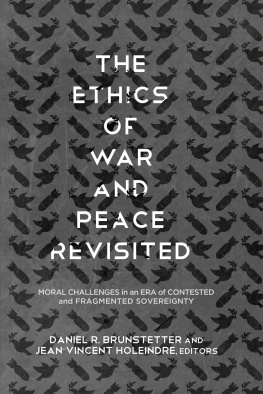
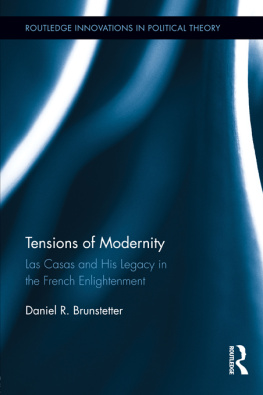

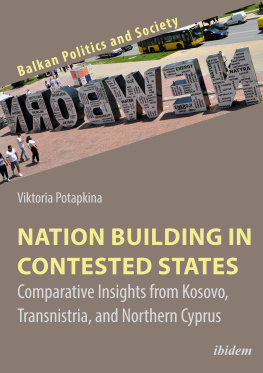
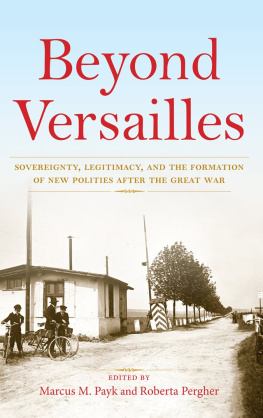
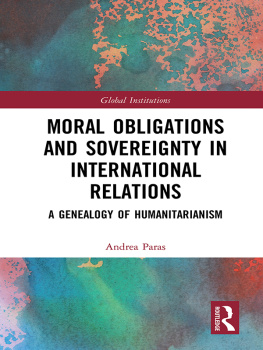
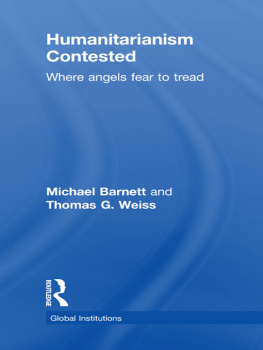
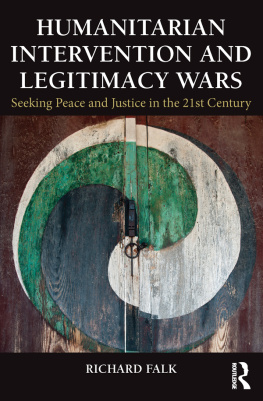
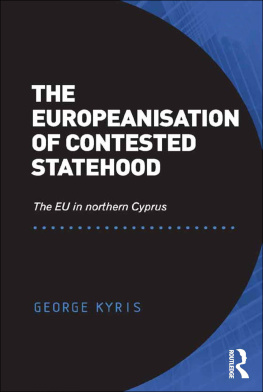
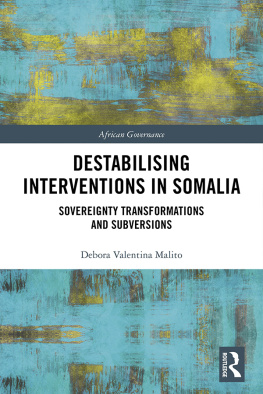
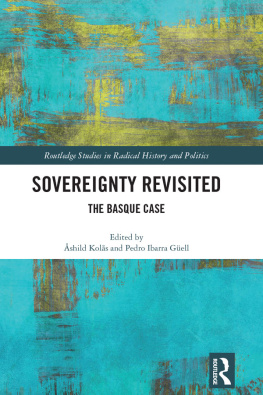
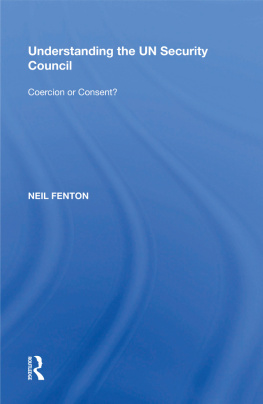


 This book is printed on acid-free paper meeting the requirements of the American National Standard for Permanence in Paper for Printed Library Materials.
This book is printed on acid-free paper meeting the requirements of the American National Standard for Permanence in Paper for Printed Library Materials.